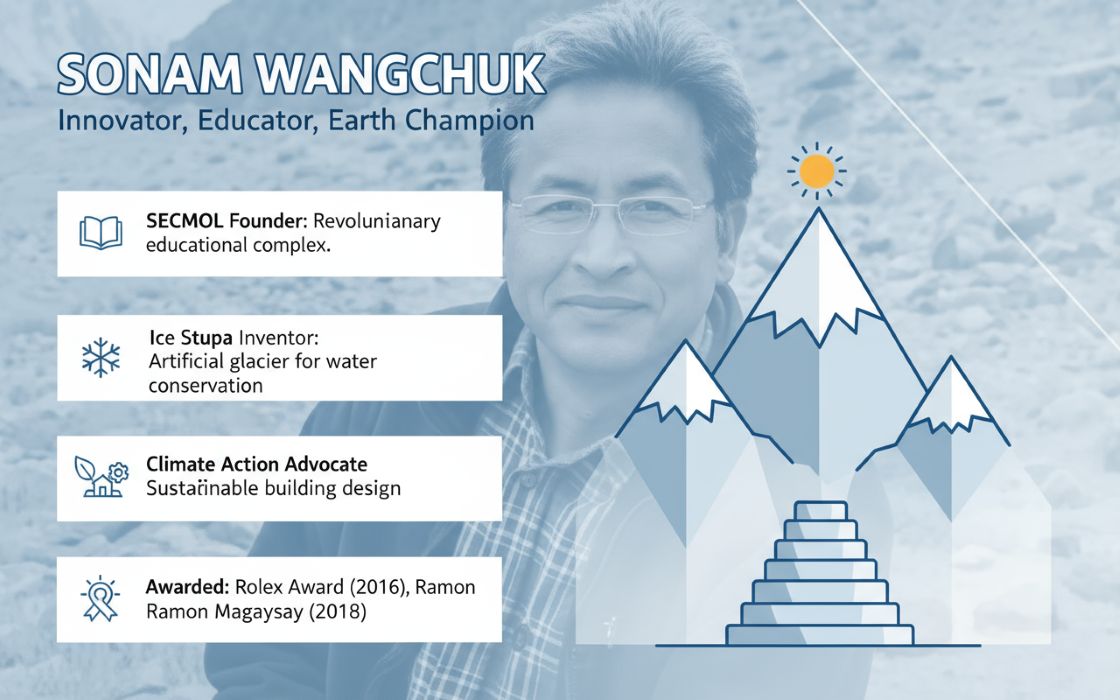India stands at a critical crossroads in its environmental journey. At CASCA’25—the nation’s flagship Climate Action & Sustainability Conference & Awards—biodiversity conservation took center stage, uniting visionaries from global organizations, grassroots movements, and ecological think tanks. Moderated by Dr. Shweta Singh, Consulting Editor at TheCSRUniverse, the panel “Protecting Our Planet: Strategies for Biodiversity Conservation” delivered a compelling call to action for every sector of society.
Civilization and Biodiversity: An Inseparable Bond
Dr. Naveen Bali, Vice President – Ecosystem Services at Iora Ecological Solutions, set the tone by reminding the audience that civilization’s progress is inseparable from the health of our natural world. “We rely on nature’s hidden ecological services—clean air, water, food, climate regulation, and even disease prevention—yet we act as if we’re separate from it,” he observed. 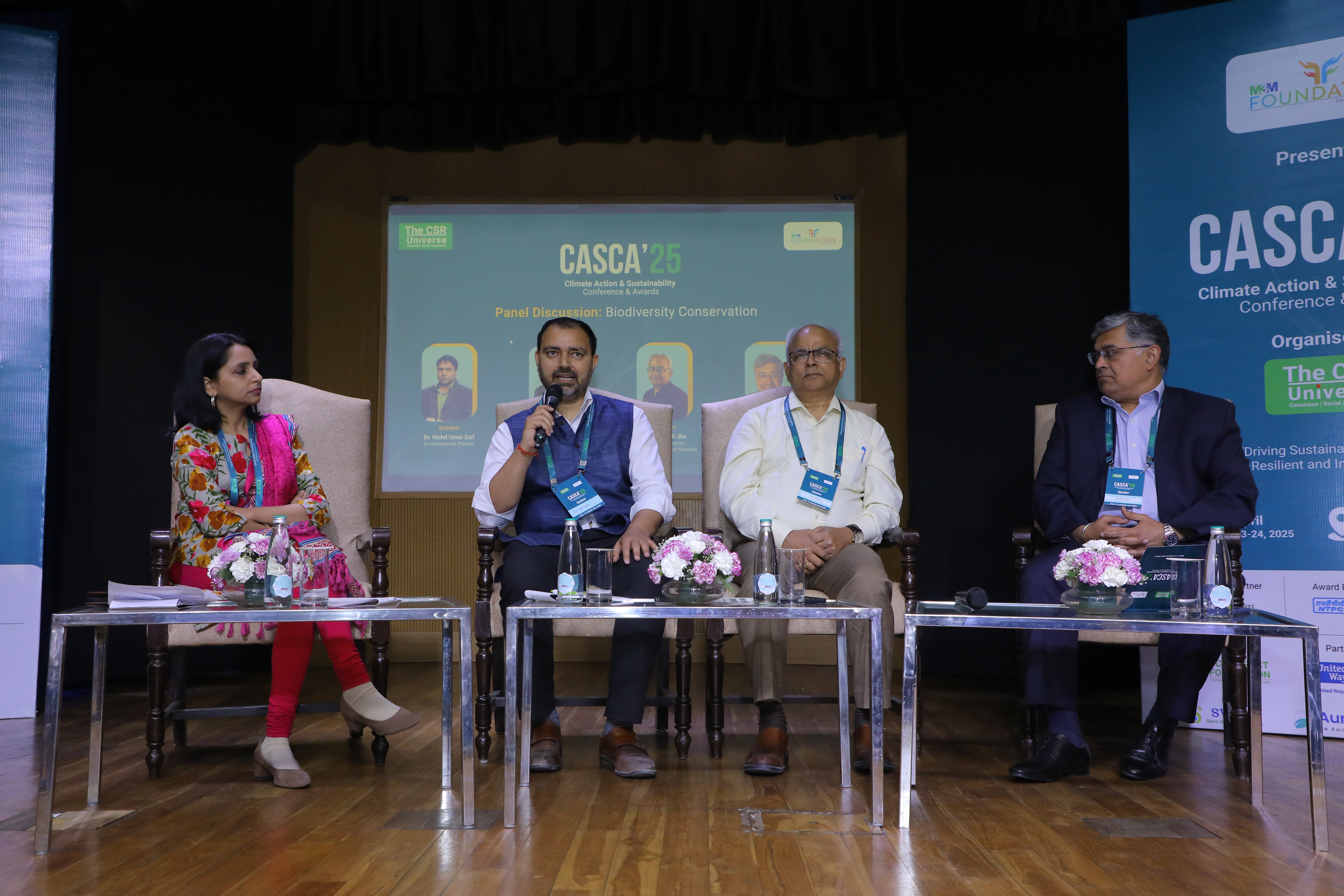
He sounded the alarm on the accelerating decline of biodiversity, attributing it to overexploitation and the failure of ecosystems to regenerate. The consequences are visible: species extinction, human-wildlife conflict, and ecosystem degradation. Dr. Bali warned that, without urgent intervention, up to 10% more species could vanish by 2050—a loss with profound implications for humanity.
His solution? Market-driven mechanisms like biodiversity credits, which assign tangible value to ecosystem services. “If we can monetize carbon, why not biodiversity?” Dr. Bali argued. Such instruments could make conservation economically viable for industries and farmers, integrating sustainability into the very core of our economic systems.
Grassroots Guardians: Community-Led Conservation
Bringing a ground-level perspective, Mr. Vishal Chowla, Director at the RoundGlass Foundation, highlighted the power of community-driven efforts. In Punjab—where forest cover is a mere 3.7%, far below the national average—his foundation is on a mission to plant one billion trees over the next decade. Yet, as he candidly admitted, “Even such massive efforts will struggle to bridge the gap.” 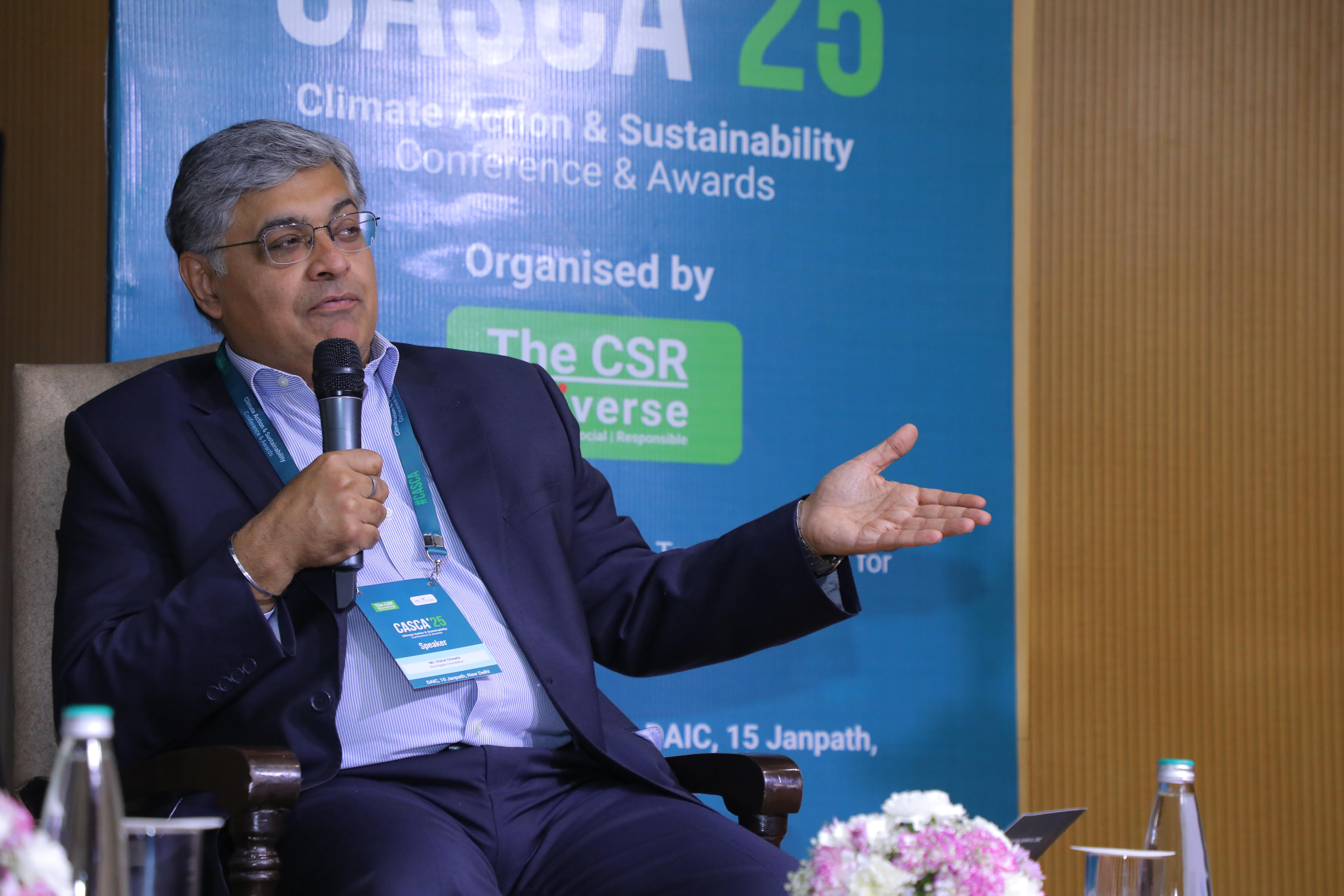
But trees are only part of the story. Through RoundGlass Sustain, the foundation documents and amplifies local conservation successes. Chowla recounted the inspiring tale of a tribal community in Rajasthan’s Menar region, which voluntarily protected a lake exclusively for migratory birds. This act of stewardship, later celebrated with a UN wildlife award, demonstrates how local ownership and storytelling can ignite wider change.
“Real transformation happens when communities are seen not just as beneficiaries, but as co-creators,” Mr. Chowla emphasized. Scaling up these models requires recognizing and empowering local leadership.
Corporate Responsibility: Businesses as Stewards of Nature
Mr. Ratnesh Jha, Executive Director of the UN Global Compact Network India, challenged businesses to move beyond token sustainability efforts. “Sustainability isn’t a checkbox. Companies must ask: Am I net water positive? Am I protecting the biodiversity around me?” he urged.
Mr. Jha advocated for embedding biodiversity into core business operations, supply chains, and profit models—not just CSR projects. He called for a phased, just transition for livelihoods tied to unsustainable practices and highlighted emerging tools like biodiversity footprint mapping and bio-credits. “Robust legislation, community participation, and indigenous wisdom are essential for lasting impact,” he added.
Rethinking Agriculture: From Green Revolution to Regeneration
The panel turned to agriculture—India’s largest driver of biodiversity loss. Dr. Bali acknowledged the Green Revolution’s role in achieving food security but noted its unintended legacy: monocropping, chemical dependency, and depleted groundwater.
He advocated for a shift to regenerative agriculture, which builds soil health, boosts nutrition, and reduces reliance on synthetic inputs. Chowla shared how RoundGlass Foundation’s demo farms in Punjab are pioneering sustainable methods, enabling farmers to make informed, profitable choices.
Mr. Jha reinforced that ecological farming is not anti-growth. “By linking farmers to carbon and bio-credit markets, and integrating traditional knowledge, we can make sustainable agriculture both viable and profitable,” he said.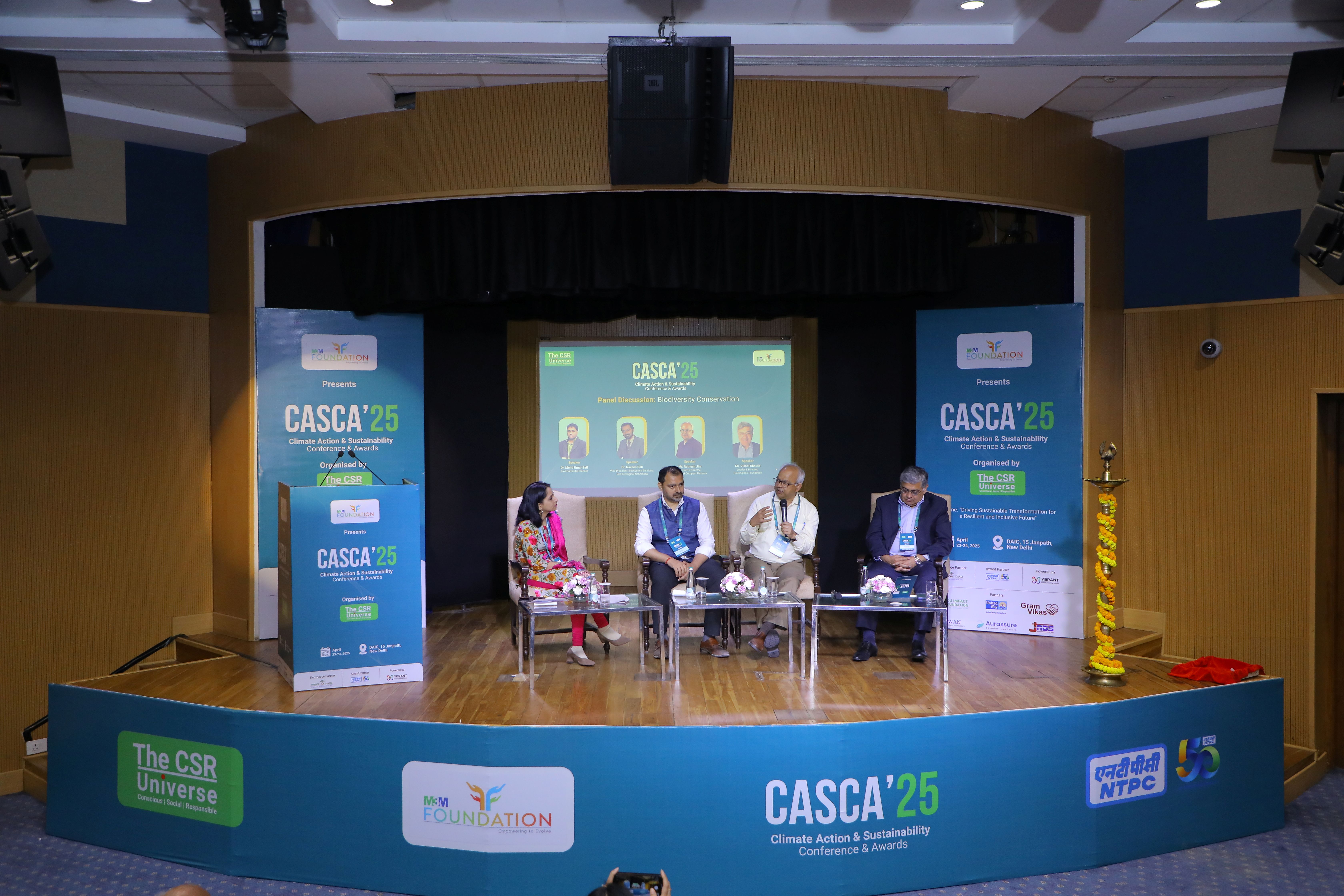
Producer vs. Consumer: Who Leads the Change?
Dr. Bali challenged the prevailing belief that consumers must drive change. “Why expect consumers to choose sustainability if they don’t have access to it?” he asked, shifting responsibility to producers—businesses, policymakers, and supply chain leaders—to ensure only sustainable options are available.
Mr. Jha agreed, but noted that consumer awareness still matters. He cited India’s Year of Millets campaign and global trends like carbon-labeled packaging as examples of how subtle nudges can influence behavior.
Valuing Nature: The Promise of Biodiversity Credits
A recurring theme was the urgent need to quantify and value nature’s services. Dr. Bali explained how forests, wetlands, and even bird habitats provide measurable benefits—water purification, carbon sequestration, ecotourism—and how these can be monetized. Biodiversity credits, he suggested, could allow companies to offset their ecological impacts by investing in conservation, making sustainability both measurable and financially attractive.
A Collective Mission: Hope Through Collaboration
As the session concluded, the panelists united around a single message: biodiversity conservation is a shared mission. Governments must regulate, businesses must innovate, communities must participate, and consumers must remain conscious. The path ahead is challenging, but collaboration across sectors can turn ambition into action.
CASCA’25’s panel was not merely a discussion—it was a rallying cry. From reforestation campaigns and biodiversity credits to eco-literacy and grassroots storytelling, India’s journey to protect its natural heritage will demand awareness, action, and accountability at every level. The road is long, but with shared purpose, the impossible becomes achievable.




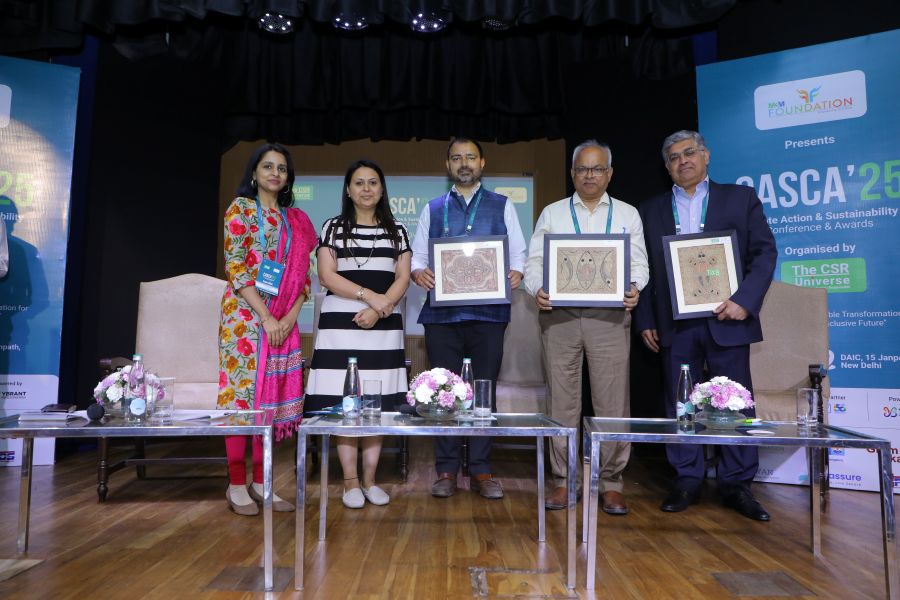




.jpg)

